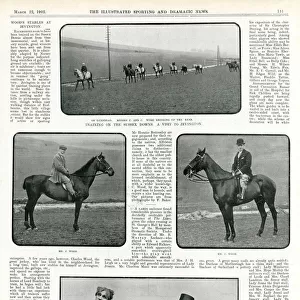Crabeater seals
![]()

Wall Art and Photo Gifts from Science Photo Library
Crabeater seals
Crabeater seals. Group of crabeater seals (Lobodon carcinophagus) submerged under pack ice. This seal inhabits the coast and pack ice of Antarctica. It can grow up to 2.4 metres in length and weighs up to 300 kilograms. Although called the crabeater, there is no evidence that it actually feeds on crabs, instead its diet consists of krill. Crabeater seals feed at night, diving below the ice up to 150 times in a night. Its teeth have evolved so that when it closes its mouth there is a sieve-like arrangement, which allows it to filter feed. Photographed off Signy Island, South Orkney Islands, British Antarctic Territory
Science Photo Library features Science and Medical images including photos and illustrations
Media ID 6462260
© DOUG ALLAN/SCIENCE PHOTO LIBRARY
Antarctic Antarctica Atlantic British Territory Carnivore Carnivorous Freezing Frozen Group M Ammals Mammal Pack Predator Predatory Seal Signy Island South Orkney Swimming Crabeater Seals Lobodon Carcinophagus
EDITORS COMMENTS
This print captures a mesmerizing scene beneath the frozen waters of Antarctica. A group of majestic Crabeater seals, known as Lobodon carcinophagus, gracefully navigate their icy habitat. These incredible creatures can reach lengths of up to 2.4 meters and weigh an impressive 300 kilograms. Contrary to their name, there is no evidence that these seals actually feast on crabs; instead, they rely on a diet primarily consisting of krill. Underneath the cover of darkness, these skilled hunters dive below the pack ice up to 150 times in a single night. One fascinating adaptation that sets them apart is their unique dental arrangement. When closing its mouth, the Crabeater seal's teeth form a sieve-like structure that enables it to filter feed efficiently. This evolutionary trait allows them to thrive in this harsh environment where food sources may be scarce. Photographed off Signy Island in the South Orkney Islands within British Antarctic Territory, this image showcases not only the beauty but also the resilience of these marine mammals. As they swim effortlessly through frigid waters surrounded by towering ice formations, we are reminded of nature's awe-inspiring wonders and our responsibility to protect such fragile ecosystems. This remarkable photograph from Science Photo Library serves as a reminder of both the delicate balance and extraordinary diversity found within our planet's most remote corners - an invitation for us all to appreciate and safeguard Earth's precious wildlife heritage for generations to come.
MADE IN THE UK
Safe Shipping with 30 Day Money Back Guarantee
FREE PERSONALISATION*
We are proud to offer a range of customisation features including Personalised Captions, Color Filters and Picture Zoom Tools
SECURE PAYMENTS
We happily accept a wide range of payment options so you can pay for the things you need in the way that is most convenient for you
* Options may vary by product and licensing agreement. Zoomed Pictures can be adjusted in the Basket.




